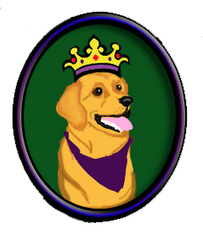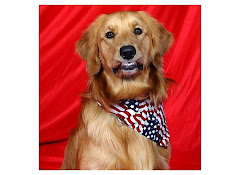Grains . . . Good or Evil?
Read more!
Excerpted from
Raw Dog Food by Carina Beth MacDonald
Dogs are not engineered to gain a significant portion of their nutrition from grains. This explains the large, soft stools excreted by most kibble-fed dogs. It is clearly processed poorly by the dog. Many vets agree that corn, wheat and soy may cause allergies, skin and coat problems. Overfeeding grains may be a big factor in the frequency of canine obesity today. This in turn may cause or aggravate many other health problems.
Grain-based diets promote bad dental health and that can lead to systemic infections and weakening of all major organs. I have seen that 85% of all dogs over the age of three suffer from periodontal disease, largely from feeding a soft mushy kibble diet. One of the first benefits of a raw diet, often noticed within a couple of weeks, is improved breath and whiter teeth. I always gave my dogs plenty of raw chew bones when I was feeding kibble, thinking that was enough. It wasn't. Once I gave my kibble away and went 100% raw, my older dogs' breath became sweeter within days, and their teeth steadily became whiter and cleaner.
Yes, there are decent kibbles on the market. You are probably feeding one now. However, all contain grain in one form or another, and a cornerstone of the raw feeding concept is that grain is wholly unnecessary for dogs. Grains are often used as fillers, and are the "glue" that holds the other ingredients in those little pellets. They provide, at best, an inexpensive, low quality protein source. Most grains are poorly digested, hence the large smelly poops they produce. Dogs did not evolve to eat grain, yet this is mainly what we have been feeding them for the last sixty years or so. Kibble contains cooked, often low quality ingredients that have had most of the nutrients, enzymes, and antioxidants "boiled" right out of them. These nutrients are then often replaced by synthetic supplements. Dogs have absolutely no need for such a high carbohydrate diet. A wolf eats very few carbs. Added to this, most run-of-the-mill kibbles are often so laden with Preservatives and salts that the dog has to drink tons of water.
Where there are allergies, yeast infections, GI upsets, poor dental health, obesity, and cancer, grain may be the major culprit. Read More......
| Grains . . . Good or Evil? | |||
Dogs are not engineered to gain a significant portion of their nutrition from grains. This explains the large, soft stools excreted by most kibble-fed dogs. It is clearly processed poorly by the dog. Many vets agree that corn, wheat and soy may cause allergies, skin and coat problems. Overfeeding grains may be a big factor in the frequency of canine obesity today. This in turn may cause or aggravate many other health problems.
Grain-based diets promote bad dental health and that can lead to systemic infections and weakening of all major organs. I have seen that 85% of all dogs over the age of three suffer from periodontal disease, largely from feeding a soft mushy kibble diet. One of the first benefits of a raw diet, often noticed within a couple of weeks, is improved breath and whiter teeth. I always gave my dogs plenty of raw chew bones when I was feeding kibble, thinking that was enough. It wasn't. Once I gave my kibble away and went 100% raw, my older dogs' breath became sweeter within days, and their teeth steadily became whiter and cleaner.
Yes, there are decent kibbles on the market. You are probably feeding one now. However, all contain grain in one form or another, and a cornerstone of the raw feeding concept is that grain is wholly unnecessary for dogs. Grains are often used as fillers, and are the "glue" that holds the other ingredients in those little pellets. They provide, at best, an inexpensive, low quality protein source. Most grains are poorly digested, hence the large smelly poops they produce. Dogs did not evolve to eat grain, yet this is mainly what we have been feeding them for the last sixty years or so. Kibble contains cooked, often low quality ingredients that have had most of the nutrients, enzymes, and antioxidants "boiled" right out of them. These nutrients are then often replaced by synthetic supplements. Dogs have absolutely no need for such a high carbohydrate diet. A wolf eats very few carbs. Added to this, most run-of-the-mill kibbles are often so laden with Preservatives and salts that the dog has to drink tons of water.
Where there are allergies, yeast infections, GI upsets, poor dental health, obesity, and cancer, grain may be the major culprit. Read More......













































